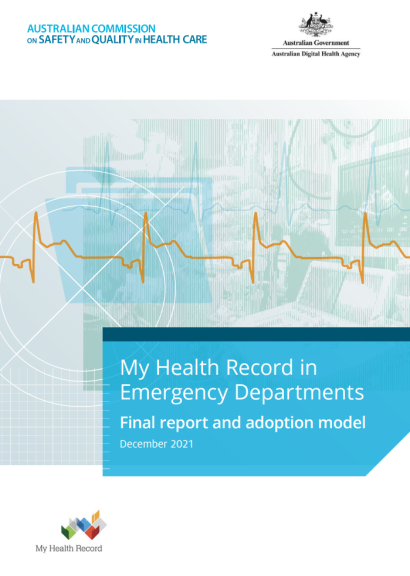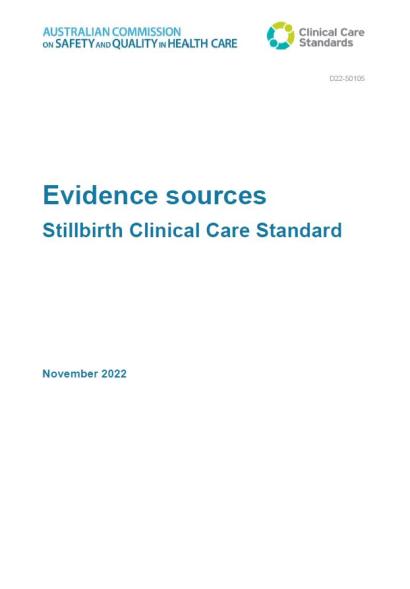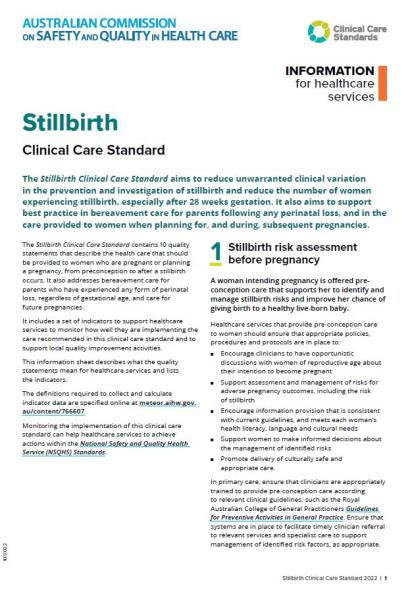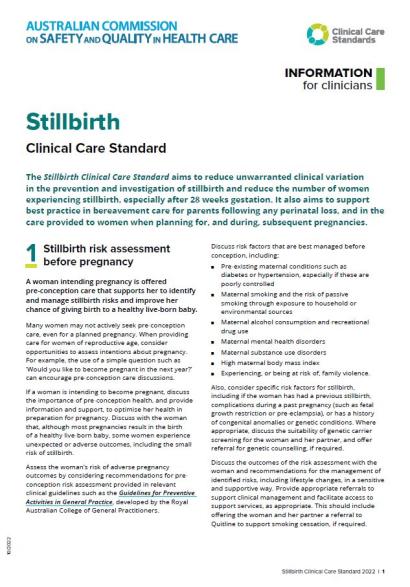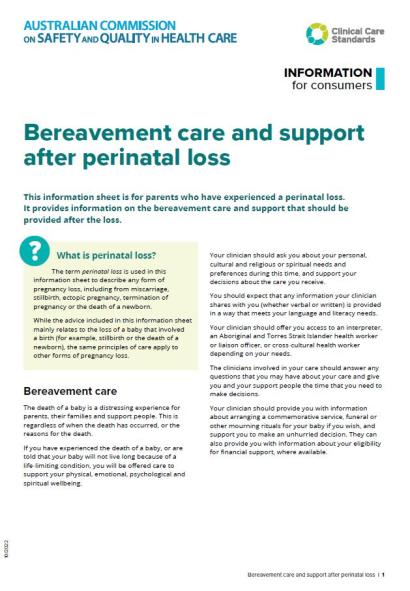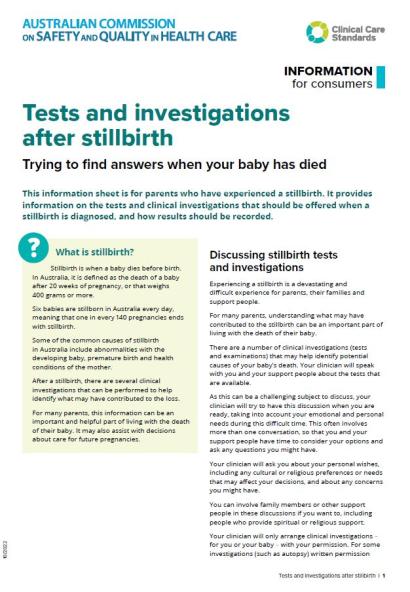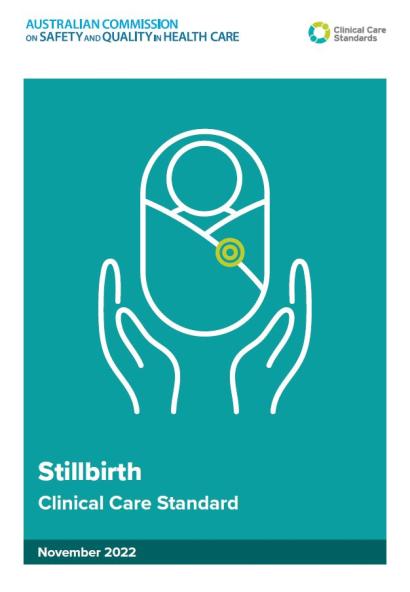This report describes findings from the My Health Record in emergency departments (EDs) project, which is the largest study of My Health Record use undertaken, covering almost 130,000 patients across four jurisdictions and involving more than 1,000 ED staff. The project’s aim was to establish enablers to regular use of the My Health Record system by ED clinicians.
Work on the quality improvement of transitions of care addresses risks for patients moving between health settings.
Accrediting agency approval process
The quality statements for the Stillbirth Clinical Care Standard are based on best available evidence and guideline recommendations at the time of development. This summary describes the relevance of each evidence source to the quality statements.
This resource accompanies the Stillbirth Clinical Care Standard. It describes what the quality statements mean for healthcare services and the indicators provided to support local quality improvement activity.
This resource lists the ten quality statements in the Stillbirth Clinical Care Standard and describes what each statement means for clinicians involved in providing care to women who are pregnant or planning a pregnancy, from preconception to after stillbirth or other form of perinatal loss.
This information sheet is for parents who have experienced a perinatal loss. It provides information on the bereavement care and support that should be provided after the loss.
This information sheet is for parents who have experienced a stillbirth. It provides information on the tests and clinical investigations that should be offered when a stillbirth is diagnosed, and how results should be recorded.
This information sheet is for women who are pregnant or planning a pregnancy. It discusses the risk of stillbirth and ways to support a health pregnancy and birth.
The Stillbirth Clinical Care Standard contains 10 quality statements and seven indicators to reduce unwarranted variation and improve the appropriateness of care for stillbirth prevention, and the quality of bereavement care following perinatal loss.

